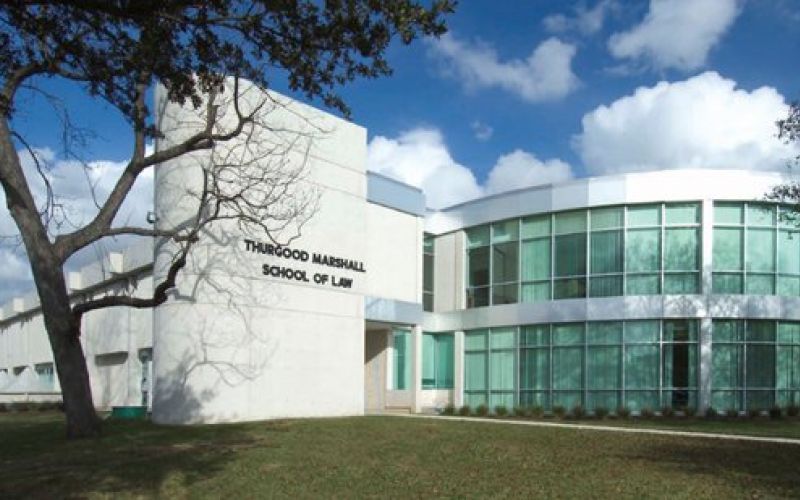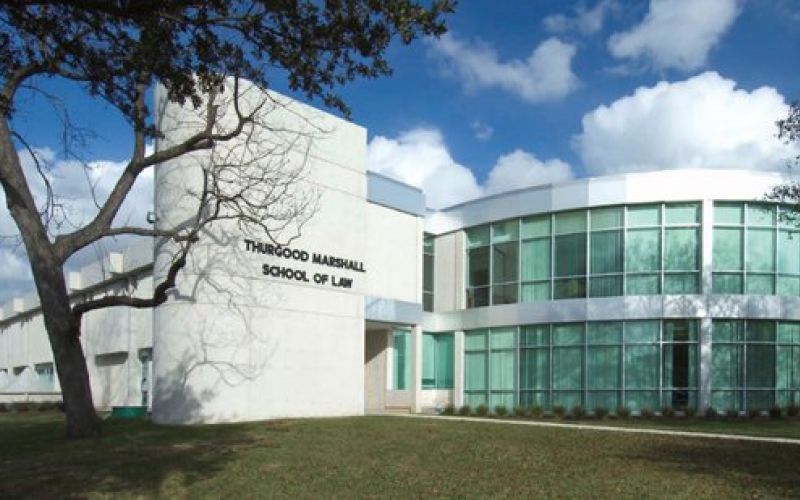[ad_1]
By Lauren Poteat, Special to the AFRO
Just a little over two years ago, Texas Southern University’s (TSU) Thurgood Marshall School of Law, found itself in the center of controversy after the American Bar Association (ABA) declared the institution to be in violation of several guideline standards. However in 2018, the historically Black institution is back with a vengeance and received approval for recommendations from the Council of the Section of Legal Education and Admissions to the ABA in early October, much to the approval of TSU law school acting dean, Gary Bledsoe.
“This has been an opportunity to improve our law school, and we’ve worked diligently to do so,” Bledsoe said. “This process fits with our strategic plan to make this great, historic law school even better, and to reflect the honor of the school’s namesake—Thurgood Marshall.”

This approval followed TSU President Dr. Austin Lane, TSU Provost Dr. Kendall Harris and Bledsoe, who last month, reported on the law school’s remediation efforts to the council.
Shortly thereafter, the ABA Accreditation Committee concluded that TSU’s law school had made progress toward full compliance of several of the ABA standards that were initially found to be in violation, back in 2015 and 2016.
“The Council’s decision is confirmation that we have made the necessary progress and are continuing to make progress with regard to the standards that were in question,” TSU President Dr. Austin Lane said.
In addition, the ABA recommended a process to be followed over the next two years—through July 2020, to validate that the law school had followed through on the commitments that it had made and that those commitments and the school’s efforts had succeeded in bringing the law school into compliance with the ABA standards.
Specific standards addressed included Standard 104, which provides for data integrity with information that is complete, accurate and submitted in a form, time and manner to the Council; Standard 205(b), which provides for equality of opportunity for faculty and staff; Standard 301(a), which provides for a rigorous program of legal education; Standard 309(b), which provides for academic support; and Standard 501 (b), which provides for qualified applicants.
TSU also noted that in addressing the academic rigor standard, the law school had strengthened the first-year program of legal education, faculty collaboration, new evaluation tools, and new curriculum, including “Criminal Justice Advocacy.”
Similarly, the law school also implemented an enhanced academic success program for its students, including practice exams, Saturday academies focused on essay writing, tutoring labs, a bar preparation course and additional measures for identifying at-risk students.
In response to the standard related to qualified applicants, the law school has modified its recruiting practices, enhanced its branding efforts and adjusted its admission index in collaboration with a streamlined interview process for prospective students.
A six-week summer program designed to assist admitted students with a predicted low academic file, is now mandatory, much to the appreciation of Dr. Lane.
“I would like to thank acting Dean Gary Bledsoe, Marcia Johnson and Cassandra Hill, each of whom played critical roles in making these changes over the past year, as well as the faculty, staff and students within the law school.”
[ad_2]
Source link

